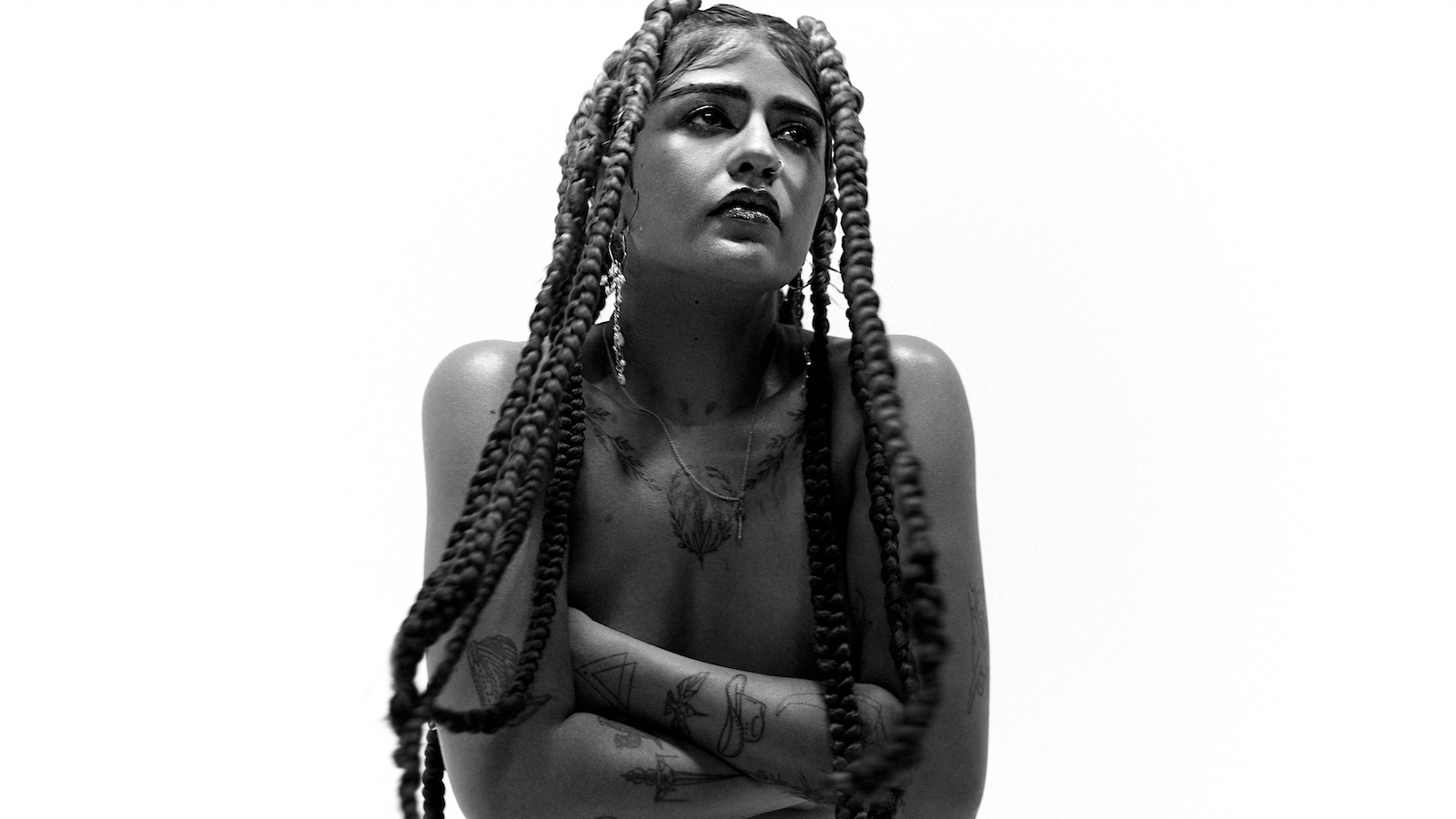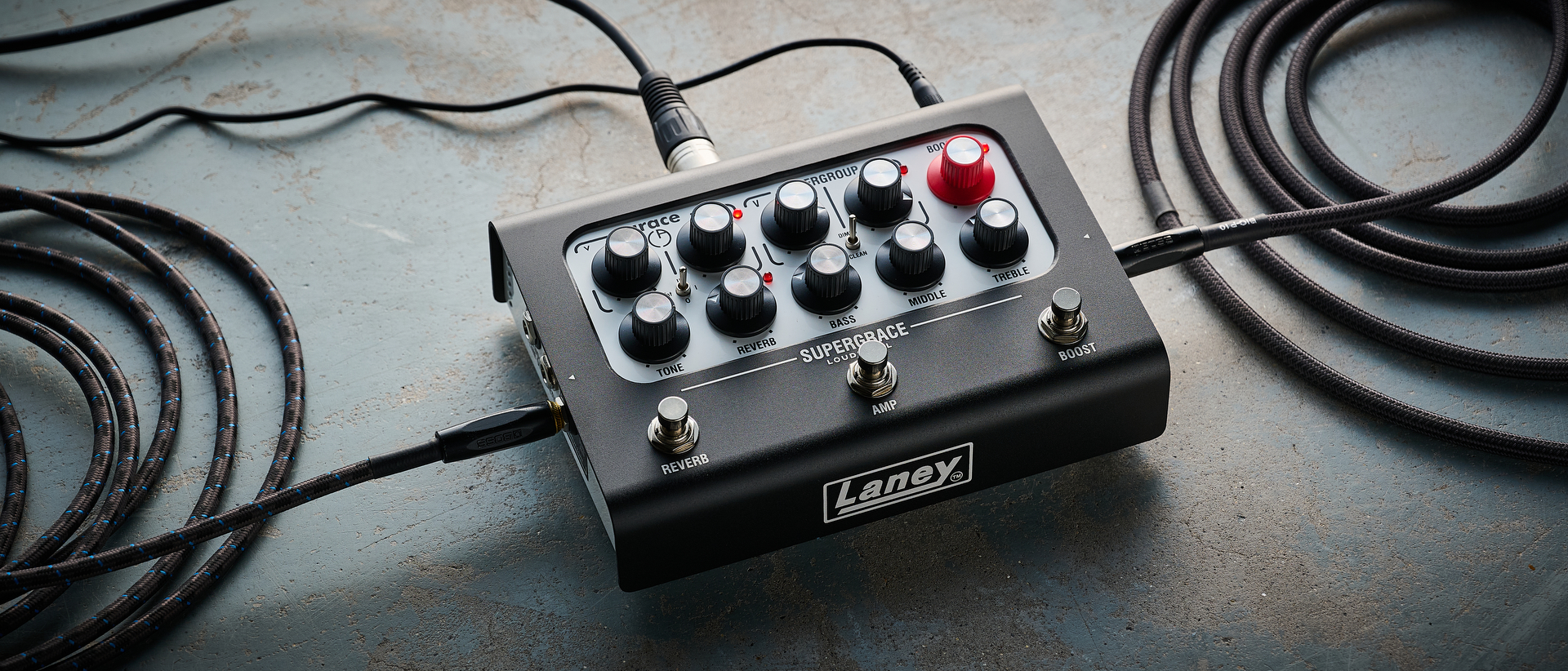Charlie Collins: “I wanted to keep the full version of myself intact on ‘Undone’”
Though its themes certainly reflect its title, Charlie Collins‘ second album is also viciously empowering, honest and heartfelt

All the latest guitar news, interviews, lessons, reviews, deals and more, direct to your inbox!
You are now subscribed
Your newsletter sign-up was successful
In announcing her long-awaited second album, Undone, indie-folk luminary Charlie Collins warned fans they were in for “some of the most honest, vulnerable music” she’d ever written. What made it read as a warning was the fact that Collins’ output thus far hadn’t exactly been your typical sunshine-and-roses, bubblegum pop‑level fare – the Tamworth native had long worn her heart on her sleeve, with 2019’s Snowpine being one of the year’s most strikingly poignant releases. But its follow-up, she promised, would “expose a lot of who I am and what I was going through”.
Lo and behold, Undone is an unapologetically heavy, sobering listen. But amid all the gut‑wrenching rawness is a palette of tones so unpredictably colourful – meticulous and intricate, yet at once loose and playful – that it’s hard not to walk away from the record feeling energised. When the soul-baring lyrics collide with the effervescent soundscape, it gives off a potent sense of razor-sharp catharsis. Undone shows Collins at her most vulnerable, yes, but it also shows her at her most confident, her most spontaneous and her most inspired.
Undone is the most authentic reflection of Charlie Collins we’ve ever seen (or heard, rather), and although she does abandon her folky roots for much of the album – the bulk of it flirts with synthpop and modern R&B – it never feels like she’s mere trying to follow trends or break into newer, maybe more commercially lucrative corners of the industry. At its core, Undone
sounds like Charlie Collins, through and through.
Australian Guitar caught up with Collins – from the back of an Uber en route to the airport, hours out from her trekking off to the UK – to chat about how the record came to be, how her newfound knack for collabs gave its sonic palette an extra little zing, and why at the end of the day, she’ll always call the acoustic guitar (to be exact, a handmade De Gruchy) home.
How does it feel to be on the other side of this record, given everything you put into it?
I have so many feelings. Obviously, first of all, I’m so excited. But I don’t know, there’s also a part of me that’s scared. This record is the most vulnerable body of work I’ve ever made, and everything’s so honest and literal. So it’s kind of emotional. When I announced it, I had a big cry – it was just kind of overwhelming, the fact that it’s finally coming out and people are going to hear what I’ve been through.
Going from the Snowpine era to this bold new chapter, how did you want this record to embody your growth as an artist?
This record has been a while in the making. I actually intended to have it out way sooner – like early last year – and I recorded it all in 2020. But there was just something about it, to me, that just didn’t feel right. So I just did some more writing. I started writing with some friends, because I felt like I could evolve even more after Snowpine and explore myself musically in a way that I’d never done before.
Even collaborating with other people – which I never did on Snowpine – it was nice to bring those other voices into the music and have other people’s influences in there, build our worlds together and create this beautiful sound that’s a lot more musical than it would be without them.
All the latest guitar news, interviews, lessons, reviews, deals and more, direct to your inbox!
I read that you’d actually scrapped the first version of Undone. What happened there?
Well I didn’t scrap the whole thing, I scrapped half of it. But like I was saying, there was something about it that just didn’t feel right. It didn’t feel as raw, or as honest as I wanted it to be – I knew I could push myself even more. It’s just that thing, like, you always want to make the best record you could ever make.
I wanted to keep the full version of myself intact on Undone, so I just started writing again, and all this other stuff came out. Like ‘Undone’, that only came to me a couple of months ago. So I’m glad I did push the ‘hold’ button on it, and allow myself to come up with some more stuff.
I love the way this record balances those really big, energetic pop songs like ‘Just My Luck’ and ‘F*** It’ with some of those more folk‑oriented, lowkey acoustic songs like ‘Hit The Lights’ and ‘No More To Lose’. How did you go about crafting this record’s tonal palette?
I wanted everything to feel quite organic, but I also wanted to myself musically, and add things like synths into some of the songs. I didn’t want to pigeonhole myself into any one particular style or sound.
Does the core of a new song still begin with the acoustic guitar?
Initially, yeah, a lot of the songs started out on an acoustic guitar. The co-writes were a bit more collaborative in a sense – they always started with some synths and drums and stuff like that.
Where did you tend to head from there, gear-wise?
So I always play my De Gruchy acoustic – it was made by a guy in South Australia, and I bought that guitar when I was, like, 12. It’s like my baby, I just take it everywhere with me. I actually did my first guitar solo on ‘November’, which I played on a Fender Custom Deluxe Tele – that’s my electric guitar, and I love that so much. And then my guitarist… Gosh, I don’t even know what guitars he uses. He changes all the time. Like, I actually can’t keep up because he would change his guitar, like, every single day [laughs].
What is it about that De Gruchy that just makes your heart skip a beat?
That guitar just feels like home to me. It’s comforting. I feel safe with it onstage because I got it when I was so young, and I’ve never played any other acoustic guitar since i got it. I feel like that guitar a part of me – it’s like molded to my fingers [laughs]. I’ve written all of my songs on it, and I’m just so attached to it. And it sounds incredible! So I don’t know… It’s almost like my little good luck charm. I named it Peanut, because it literally looks like a little peanut.
Did you make the new record with your live band?
Yeah, I did about half the record with the live band. It’s so beautiful. There’s something about [recording with the band] that’s just so organic. I love when you can feel the energy, because you’re all working together as a team to create this beautiful body of sound – I love that feeling. It’s just feels very organic. And I don’t know, it’s almost like you can feel the song even more, because you’re not just individually cutting and pasting things. Everyone’s being perfect in an imperfect kind of way, and there’s a lot more soul in it. So it was nice to do that.

Ellie Robinson is an Australian writer, editor and dog enthusiast with a keen ear for pop-rock and a keen tongue for actual Pop Rocks. Her bylines include music rag staples like NME, BLUNT, Mixdown and, of course, Australian Guitar (where she also serves as Editor-at-Large), but also less expected fare like TV Soap and Snowboarding Australia. Her go-to guitar is a Fender Player Tele, which, controversially, she only picked up after she'd joined the team at Australian Guitar. Before then, Ellie was a keyboardist – thankfully, the AG crew helped her see the light…
